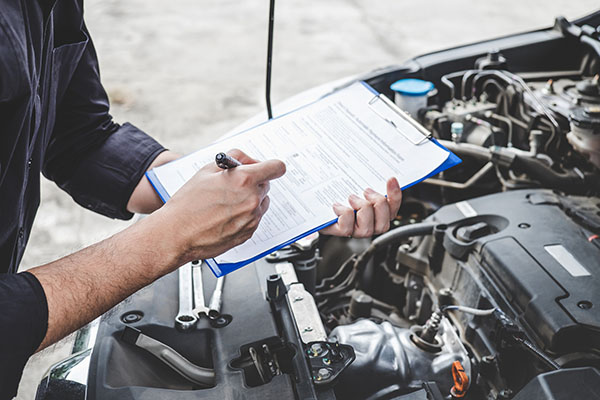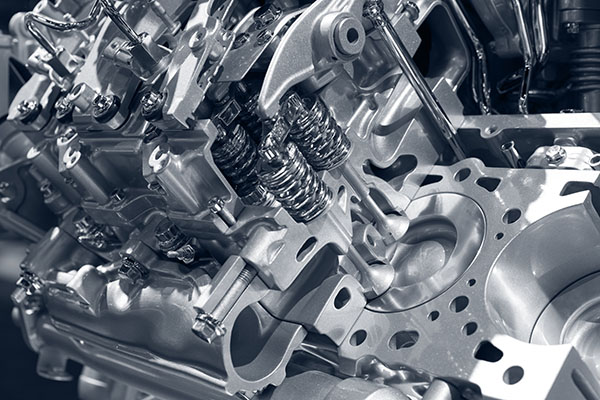Posted on 11/29/2023

Your otherwise peaceful drive may suddenly be interrupted by the introduction of a new sound. This sound could be a hum, a clunk, or a mysterious rattle, all of which can disrupt the harmonious rhythm of your journey. However, before giving in to panic, it is essential to explore the possible reasons behind these sounds during acceleration. 1. Worn-out Bearings Ever experienced a rhythmic hum or growl as you press the pedal? This could be the handiwork of worn-out wheel bearings. These crucial components support the weight of your vehicle and allow the wheels to spin smoothly. Over time, wear and tear can lead to a distinct noise, especially during acceleration. Picture it as your car's way of telling you it might need a bearing makeover. 2. Loose or Damaged Heat Shields Listen closely; is there a metallic tap dance emanating from beneath your car? This might be the result of loose or damaged heat shields. These shields serve as protective laye ... read more
Posted on 10/28/2023

As car owners, we can all relate to the confusion and anxiety that the check engine light brings. It's natural to feel uncertain about whether to schedule a comprehensive vehicle inspection or a quicker computer diagnostics check. It can be a daunting task to decipher the meaning behind that ominous dashboard warning light. Where should one begin, and what path leads to the most effective and efficient solution? Vehicle Inspection - Beyond the Surface Scans When faced with the persistent glow of the check engine light, opting for a thorough vehicle inspection can unveil a trove of potential issues. Trained mechanics delve beyond the surface, meticulously examining various components such as the exhaust system, fuel injector, spark plugs, and more. Through a systematic approach encompassing visual checks, component tests, and performance evaluations, a comprehensive i ... read more
Posted on 9/22/2023

Your car is more than just a machine - it's a trusted companion on your journeys. However, as time passes, every vehicle faces wear and tear. When issues arise, the decision to repair or overhaul can be a daunting one. Repair Repairs involve fixing specific issues or components that have malfunctioned or worn out. These can range from small fixes, like replacing a worn brake pad, to more significant repairs, such as fixing an engine coolant leak. Repairing is typically less expensive than overhauling and focuses on addressing immediate problems. Consider Repair When... The Issue Is Isolated: If the problem is limited to a specific component or system, a repair may be the most cost-effective solution. Your Vehicle Is Relatively New: For newer cars with lower mileage, repairs are often sufficient to keep the vehicle running reliably. You Have a Limited Budget: If you're working with a tight budget, repairing specific ... read more
Posted on 8/31/2023

Owning a vehicle is undoubtedly a convenience, but it also comes with its fair share of responsibilities. While the initial purchase price is one consideration, the long-term costs of driving and maintaining your vehicle can add up significantly. Are there habits you're inadvertently practicing that are siphoning money from your wallet? Let's answer this question together and share some common driving and maintenance practices that might be costing you money in the long run, and explore ways to steer your habits toward savings. Neglecting Regular Maintenance: A Costly Oversight Imagine this: You're cruising along smoothly in your car, enjoying the open road, when suddenly, an unforeseen breakdown brings your adventure to a halt. Neglecting regular maintenance is a common oversight that can result in hefty repair bills. Failing to change the oil on time, ignoring worn-out brake pads, or overlooking a simple air filter replacement might seem like min ... read more
Posted on 7/31/2023

Every car enthusiast dreams of getting the most out of their vehicle's performance. Whether you drive a sports car, a sedan, or an SUV, there are several ways you can enhance your car's performance and enjoy a more thrilling driving experience. Regular Maintenance and Tuning Before diving into performance upgrades, it's crucial to ensure your car is in optimal condition. Regular maintenance, including oil changes, air filter replacements, and spark plug checks, keeps your engine running smoothly and efficiently. A well-maintained engine is the foundation for improved performance. Additionally, consider a professional engine tune-up. ECU (Engine Control Unit) tuning can optimize your car's performance by adjusting various parameters, such as fuel-air mixture, ignition timing, and boost pressure (in turbocharged engines). Tuning can unleash hidden power and torque, enhancing acceleration and overall driving performance. However ... read more